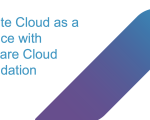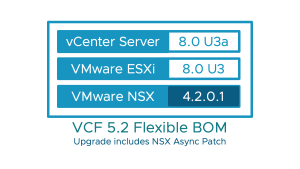
VMware Explore conference in Las Vegas reinforced a crucial trend: it’s clear that on-premise data strategy is a cornerstone for many organizations more than ever. Databases have been the cornerstone of VMware environments. Our telemetry shows that approximately 25% of all workloads on vSphere are data-related, mostly relational databases but a long tail of new open-source data services.
The Rise of Open-Source Data Services
Recent years have witnessed a surge in the adoption of open-source databases and other data services like object storage, message buses, key-value stores, document DBs, etc.. This trend is driven by several factors:
- Cost: Commercial databases have become increasingly expensive to license, virtualize, and maintain, prompting many enterprises to seek alternatives.
- Feature Parity: Open-source databases like MySQL and PostgreSQL have matured to offer comparable functionality to commercial counterparts.
- Modern Application Requirements: Modern applications demand a diverse range of data services, including relational databases, document stores, streaming platforms, and more.
Customer Challenges
Managing both the increased number of open-source data services and the traditional commercial databases is very challenging for our customers:
- On one hand, central IT teams deal with commercial databases, which requires DBA specialists and dedicated operational processes. Those silos (team, process, tool) work but are very expensive.
- On the other hand, applications teams and Line of Businesses push for open-source data services. Both the types of data services and the number of instances are orders of magnitude more than what traditional IT and DBAs dealt with.
VCF’s Data Services Strategy
To address the evolving needs of our customers, VCF simplifies data services management and consumption for both IT teams and application developers. Data Services are a key component of delivering a private cloud for our customers and it aligns to the vision shared at Explore summarized in the blog: Introducing VMware Cloud Foundation 9
For all data services, VCF leverages a comprehensive set of features, including:
- Robust Infrastructure: Best-in-class virtualization, native container support, efficient storage, and industry-leading data protection.
- Automation: VCF Automation streamlines data service provisioning and management through catalogs, blueprints, and APIs.
- Monitoring and Troubleshooting: VCF Operations provides extensive tools for monitoring and troubleshooting popular databases.
For a set of selected modern data services, VCF offers enhanced capabilities leveraging Data Services Manager such as:
- Lifecycle Management: Automated workflows for maintenance and updates.
- Data Path and Resource Management: Comprehensive visibility and control over data flows and resource utilization.
- High Availability and Clustering: Robust features to ensure data service reliability.
- Enterprise-Grade Support: Dedicated support from VMware or partners.
Streamlined Experience
VCF offers a single, streamlined operational experience, consistent with our customers’ current practices. This benefits all the personas that are involved in managing the data services. Moreover, we enable our customers to deliver DBaaS and other data services to their app teams.
For traditional commercial databases, at a high level, VCF serves three main personas:
- App owners seek efficient self-service deployment and management of databases throughout the app lifecycle. VCF Automation catalog and templates, addresses this need by moving away from legacy ticket-based systems.
- DBAs rely heavily on vendor-specific tools like MS SQL Server Management Studio for tasks such as monitoring, performance tuning, configuration, indexing, lifecycle management, and scaling.
- Infrastructure teams work in conjunction with DBAs to manage the underlying compute, network, and storage resources required to meet service level agreements, ensure high availability, and implement backup strategies.
For modern open-source data services, we still serve the three personas we listed earlier but VCF is handling the operations for the data services themselves removing the operational and expertise silos existing for traditional commercial databases:
- App teams: Continue supporting self-service consumption through VCF Automation. Expand capabilities with K8s-based APIs and operational features for CI/CD integration. Support both VCF Automation’s soft tenancy and integration with vCD’s hard tenancy.
- Data teams: Manage database versions, auditing, security, upgrades, and protection policies. Supervise SLA/SLOs for data services. Use VCF Ops and Data Services Manager for full lifecycle management.
- Infra admins: Manage database fleets, ensure performance and compliance, and enforce data protection policies.
Conclusion
VCF provides a unified platform for managing and consuming both traditional and modern data services. By offering a consistent operational experience and comprehensive features, VCF empowers organizations to deliver reliable, scalable, and secure data services. To learn more about Data Services Manager:
- Watch Christos Karamanolis session at Explore Las Vegas here
- Take a Hands-on Labs HOL-2407-01-SDC – VMware Data Services Manager – Getting Started: https://labs.hol.vmware.com/HOL/catalog/lab/13929
- Listen to DSM webinar: VMware Cloud Foundation Data Services Manager for Practitioners
- Register in the DSM Early Access Program and talk to the product team
The post VMware Data Services Manager: A Cornerstone for Private Cloud Data Strategy appeared first on VMware Cloud Foundation (VCF) Blog.

























